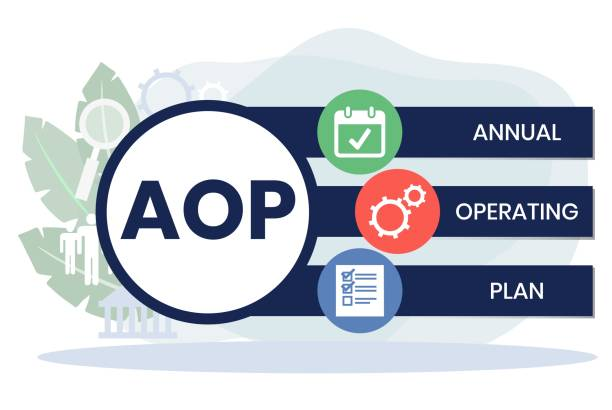Understanding why personal finance depends on your behavior is basic to anybody looking forward to financial health. It is a link between private behavior and financial consequences, over and above an abstract academic thought; it practically gives the most subtle reality to each of your financial decisions. Today, we are going to discuss how your daily habits, decisions, and mindset all come together in the most subtle ways that affect your finances.
The Psychology of Spending
Probably the most critical dimension of personal finance is having a clear understanding of the psychology of spending. Human beings interweave emotion and behavior, including cognitive biases, into the decisions they make that involve money. One of the most common behaviors, especially in impulse buying, includes the implication associated with financial well-being.
The Impact of Impulse Buying
Impulse buying is a process when human beings all of a sudden decide to purchase goods or services in the market without any pre-thought or proper planning about how necessary it is. In reality, this type of behavior can bring several disastrous effects on an individual’s personal finance.
- Emotional Spending: Most people generally end up spending in a bid to cope with their emotional upsets. In times of stress, sadness, or even simple boredom, the comfort of spending money sounds like a great idea at that time. This gets them to over-expand and acquire debt, of course, adding on to whatever emotional distress was originally present.
- Instant Gratification: The temptation to spend on the things one wants at the moment and instantly gratify the need, at the price of long-term financial goals, is tantamount to being led by the nose by instant pleasures. The impulsive action sometimes leads to unnecessary and costly purchases, thereby compromising the savings and investment for the future.
Behavioral Economics Insights
This, however, brings out the aspect of behavioral economics, suggesting that understanding key psychological factors beneath the impulse buying is essential in the development of effective strategies in the management of personal finances. These would be the precious views of behavioral economics with respect to the cognitive biases and the irrational behaviors resulting from our decision-making about spending. Some of the vital principles include:
- Loss aversion: People are hyper-sensitive to risks that bring about gains if that means risking an equivalent loss; people would also rather avoid losing than risking the same. It may cover everything from clothes to gadgets in terms of spending impulsive purchases, and the decision of the individual taken out of fear of not missing an opportunity or a deal where there is no need for such a product.
- Anchoring: This is the tendency always to be based on the information first encountered. Most retailers use anchoring techniques, i.e., showing a higher first price that is scored out to make the current one look cheaper, to change consumer behavior and elicit impulse buying.
- Hyperbolic Discounting: A phenomenon by which people place a higher value on immediate rewards, though at the same time, they are fully aware that the rewards in the future are better. It simply means that individuals would take short-term enjoyment rather than long-term financial security of being impulsive with spending, hence saving poorly.
The Role of Financial Literacy
In today’s complex financial landscape, possessing a strong understanding of financial concepts is paramount. From budgeting and investing to debt management, financial literacy plays a pivotal role in shaping individual financial behaviors and outcomes. Let’s delve deeper into why personal finance is intricately linked to education.
Knowledge is Power
Financial literacy empowers individuals to make informed decisions that align with their long-term financial goals. By understanding fundamental concepts such as budgeting, saving, and investing, individuals can develop strategies to manage their finances effectively. Here’s how financial literacy influences behavior:
- Informed Decisions: Armed with financial knowledge, individuals can evaluate financial products and services more critically. They can assess the potential risks and rewards associated with different options, enabling them to make decisions that support their financial well-being in the long run.
- Risk Management: Financial literacy equips individuals with the tools to assess and manage risk effectively. Whether it’s evaluating investment opportunities, understanding insurance policies, or navigating debt obligations, a deeper understanding of financial concepts helps mitigate potential risks and avoid costly mistakes.
Real Data on Financial Literacy
Research consistently demonstrates the positive correlation between financial literacy and favorable financial outcomes. Studies have highlighted the tangible benefits of higher levels of financial literacy, including:
- Increased Saving Rates: Individuals with higher levels of financial literacy tend to save more effectively, allocating a larger portion of their income towards savings and investments. They understand the importance of building an emergency fund, planning for retirement, and achieving long-term financial security.
- More Appropriate Investment Choices: Financially literate individuals are better equipped to make prudent investment decisions. They understand the principles of diversification, risk tolerance, and asset allocation, allowing them to construct portfolios that align with their financial goals and risk preferences.
Budgeting: Your Financial Blueprint

Budgeting serves as a foundational aspect of personal finance, providing individuals with a structured plan to manage their income and expenses effectively. By creating and adhering to a personal budget, individuals can gain greater control over their finances, align their spending with their financial goals, and make informed decisions about how to allocate their resources. Let’s explore how budgeting influences financial behavior and the tools and techniques available to facilitate the budgeting process.
Creating a Personal Budget
A personal budget serves as a roadmap for managing financial resources, ensuring that expenses do not exceed income and facilitating prudent financial decision-making. Here’s why budgeting is a critical behavior that directly impacts personal finance:
- Visibility into Spending: Regular budgeting practices enable individuals to maintain a clear understanding of their financial inflows and outflows. By tracking expenses meticulously, individuals can identify areas of overspending and make necessary adjustments to curb unnecessary expenses. This heightened awareness of spending habits fosters greater financial discipline and accountability.
- Goal Alignment: Budgets serve as a tool for aligning daily spending behaviors with longer-term financial objectives. Whether it’s saving for a down payment on a home, funding an education, or building an emergency fund, a well-crafted budget ensures that financial resources are allocated in a manner that prioritizes the achievement of specific financial goals. By aligning spending patterns with overarching objectives, individuals can make tangible progress towards their aspirations.
Tools and Techniques
Modern budgeting tools and techniques offer individuals convenient and efficient ways to create, manage, and monitor their personal budgets. Leveraging these tools can streamline the budgeting process, enhance financial awareness, and facilitate adherence to financial plans. Here are some popular tools and techniques for budgeting:
| Method | Description |
| Budgeting Apps | Smartphone apps and digital platforms provide users with user-friendly interfaces to create and manage personal budgets. These apps often offer features such as expense tracking, goal setting, automatic categorization of expenses, and real-time budget tracking. Popular budgeting apps include Mint, YNAB (You Need a Budget), and PocketGuard. |
| Spreadsheets | Traditional spreadsheet software, such as Microsoft Excel or Google Sheets, remains a popular choice for budgeting due to its flexibility and customization options. Users can create personalized budget templates tailored to their specific financial circumstances, incorporating income sources, fixed expenses, variable expenses, savings goals, and more. Spreadsheet-based budgets allow for detailed analysis and adjustment of spending patterns over time. |
| Envelope System | The envelope budgeting method involves allocating cash into separate envelopes designated for different spending categories, such as groceries, utilities, entertainment, and transportation. Each envelope represents a specific budgeted amount for the corresponding category, and individuals can only spend from each envelope’s allocated funds. This tangible approach to budgeting promotes mindful spending and prevents overspending in any particular category. |
| Zero-Based Budgeting | Zero-based budgeting requires assigning every dollar of income to a specific expense category or savings goal, ensuring that total expenses equal total income. This method encourages individuals to prioritize expenses based on their financial goals and values, eliminating wasteful spending and maximizing the efficiency of financial resources. |
Debt Management: Navigating Financial Obligations
Effective management of debt requires understanding how different types of debt work, prioritizing repayments, and avoiding behaviors that can lead to excessive debt accumulation. Let’s delve into the importance of debt management and how it influences financial behavior and outcomes.
Understanding Debt
Debt refers to money borrowed by an individual or entity with the expectation of repayment, usually with interest. While debt can be a useful financial tool for achieving specific goals, such as purchasing a home or funding education, it can also become a burden if not managed responsibly. Here’s why personal finance is contingent upon behavior, especially when it comes to debt management:
- Strategic Repayments: Prioritizing debt repayment is essential for minimizing interest costs and accelerating the path to financial freedom. By focusing on paying off high-interest debt first, individuals can save thousands of dollars in interest payments over time. This strategic approach to debt repayment involves identifying and targeting debts with the highest interest rates, such as credit card debt or high-interest loans, while continuing to make minimum payments on other debts.
- Avoiding New Debt: Responsible borrowing behaviors are crucial for preventing the accumulation of debt that exceeds one’s ability to repay. Taking on new debt without careful consideration of its affordability and impact on overall financial health can lead to a cycle of debt dependency and financial distress. By exercising restraint and avoiding unnecessary borrowing, individuals can maintain control over their financial obligations and avoid falling into debt traps.
Impact of Debt on Financial Health
Debt can have both positive and negative effects on an individual’s financial health, depending on how it is managed and utilized. Understanding the implications of different types of debt is essential for making informed financial decisions. Here’s how debt management influences financial well-being:
- Tool for Building Wealth: Certain types of debt, such as mortgages for property purchase or student loans for education, can serve as strategic investments that contribute to long-term wealth accumulation. These debts allow individuals to acquire assets or invest in human capital that has the potential to generate future returns. When managed responsibly, debt can facilitate wealth-building opportunities and asset appreciation.
- Burden on Financial Health: On the other hand, high-interest debt, such as credit card debt or payday loans, can quickly become a financial burden if not managed prudently. Excessive debt payments can strain cash flow, limit financial flexibility, and hinder progress towards important financial goals, such as retirement savings or emergency fund contributions. Moreover, carrying a heavy debt burden can negatively impact credit scores, making it more challenging to access favorable borrowing terms in the future.
Investing: The Behavior of Building Wealth

Investing serves as a cornerstone of wealth-building and financial success, offering individuals the opportunity to grow their assets over time through strategic allocation of capital. However, successful investing is not solely determined by financial knowledge or market expertise; rather, it is heavily influenced by individual behavior and decision-making. Let’s explore the role of behavior in investing, the importance of long-term investment strategies, and real-life success stories that exemplify the impact of behavior on financial outcomes.
Long-Term Investment Strategies
Investing is inherently linked to personal finance behavior, as the decisions individuals make regarding their investments can significantly impact their financial well-being over time. Here’s why behavior plays a crucial role in crafting effective investment strategies:
- Market Timing: Attempting to time the market by buying and selling securities based on short-term market fluctuations often leads to suboptimal investment outcomes. Research has consistently shown that frequent trading tends to result in poorer performance compared to a long-term, buy-and-hold strategy. By adopting a patient and disciplined approach to investing, individuals can capitalize on the power of compounding interest and benefit from the long-term growth potential of their investments.
- Risk Tolerance: Understanding one’s risk tolerance is essential for constructing a portfolio that aligns with one’s financial goals and temperament. Different investment assets carry varying levels of risk, and individuals may have different comfort levels with volatility and uncertainty in the market. By assessing their risk tolerance accurately, investors can select investments that they are comfortable holding through market fluctuations, minimizing the likelihood of panic selling during periods of market downturns.
Real-Life Success Stories
Real-life success stories of individuals who have achieved significant wealth through disciplined, long-term investing strategies serve as compelling examples of the potent impact of behavior on financial outcomes. These stories highlight the importance of patience, perseverance, and prudent decision-making in wealth accumulation. Here are some key lessons gleaned from real-life success stories:
- Consistent Savings and Investing: Many successful investors attribute their wealth accumulation to consistent savings habits and regular contributions to investment accounts over time. By prioritizing saving and investing early in their careers, individuals can harness the power of compounding and benefit from the exponential growth of their investments over the long term.
- Emotional Discipline: Successful investors exhibit emotional discipline and resilience in the face of market volatility and uncertainty. They avoid making impulsive decisions based on short-term market movements and maintain a long-term perspective on their investment goals. By staying focused on their investment strategy and avoiding emotional reactions to market fluctuations, they position themselves for long-term success.
- Diversification and Asset Allocation: Real-life success stories often emphasize the importance of diversification and asset allocation in managing investment risk. By spreading investments across different asset classes, industries, and geographic regions, investors can reduce portfolio volatility and mitigate the impact of individual market downturns. Additionally, maintaining a well-balanced portfolio that aligns with one’s risk tolerance and investment objectives is crucial for achieving long-term financial goals.
Financial Planning for the Future
Planning for the future involves setting clear financial goals and implementing strategies to achieve them. Whether it’s saving for retirement, purchasing a home, or funding education, long-term financial planning requires thoughtful consideration, disciplined behaviors, and strategic decision-making. Let’s explore the importance of setting financial goals, the role of specific goals such as retirement and education funds, and how financial advisors can assist in aligning financial behaviors with long-term objectives.
Setting Financial Goals
Setting financial goals provides individuals with a roadmap for achieving their desired financial outcomes and helps guide their financial decisions and behaviors. Here’s why setting financial goals is essential for effective long-term financial planning:
- Clarity and Direction: Financial goals provide clarity and direction, helping individuals prioritize their financial objectives and allocate resources accordingly. Whether it’s paying off debt, building an emergency fund, or saving for a major purchase, clearly defined goals serve as motivators and benchmarks for progress.
- Focus and Discipline: Establishing financial goals requires discipline and commitment to consistent saving and investing behaviors. By setting specific, measurable, achievable, relevant, and time-bound (SMART) goals, individuals can maintain focus and stay on track with their long-term financial plans.
Retirement Planning
Retirement planning is a fundamental aspect of long-term financial planning, ensuring individuals can maintain their desired lifestyle and financial security during their retirement years. Here’s why retirement planning is crucial for securing financial futures:
| Strategy | Description |
| Regular Contributions | Making regular contributions to retirement accounts, such as 401(k) plans or individual retirement accounts (IRAs), is a behavior that can significantly impact one’s financial future. By starting early and contributing consistently over time, individuals can harness the power of compounding and build substantial retirement savings. |
Education Funds
Planning for education expenses, whether for oneself, a child, or a dependent, is another important component of long-term financial planning. Here’s why setting up education funds is beneficial:
| Strategy | Description |
| Financial Stress Reduction | Setting up education funds early can alleviate the financial stress associated with college expenses. By saving and investing in education-specific accounts, such as 529 plans or education savings accounts (ESAs), individuals can ensure adequate funding for educational pursuits without sacrificing their long-term financial goals. |
The Role of Advisors
Financial advisors can play a valuable role in guiding individuals through the financial planning process and helping align their behaviors with their long-term goals. Here’s how financial advisors can assist in achieving financial objectives:
- Personalized Guidance: Financial advisors offer personalized guidance tailored to individuals’ unique financial circumstances, goals, and risk tolerance. They can help individuals develop comprehensive financial plans, identify suitable investment strategies, and make informed decisions about saving, investing, and retirement planning.
- Behavioral Coaching: Financial advisors can provide behavioral coaching to help individuals overcome common behavioral biases and emotions that may impede sound financial decision-making. By offering support, accountability, and encouragement, advisors can help clients stay focused on their long-term goals and avoid impulsive or detrimental financial behaviors.
Conclusion
Understanding why personal finance is dependent upon your behavior is the first step to taking control of your financial future. Through informed decisions and consistent behavior adjustments, you can greatly enhance your financial wellbeing.
FAQ
Your spending behavior directly impacts your ability to save, invest, and grow your wealth. Overspending or poor budget management can delay or derail your financial goals.
Absolutely. Adopting positive financial behaviors such as budgeting, investing wisely, and managing debt can significantly improve your financial health.
Financial behaviors are often deeply ingrained and influenced by emotions, habits, and the environment. Awareness and education are key to making lasting changes.
Start by tracking your spending to identify areas where you can cut back. Set clear, achievable financial goals, and seek resources or guidance to improve your financial literacy.



